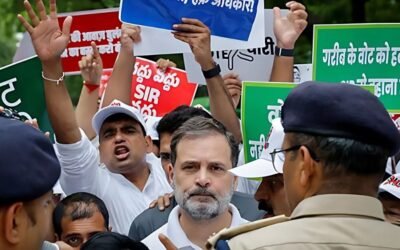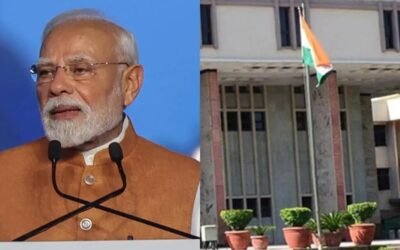On August 21, 2025, the Indian Sports Ministry announced a new formal policy on sporting engagements with Pakistan. The decision was neither surprising nor unexpected—it only put in writing what had long been an “unwritten rule.” Yet, the policy raises troubling questions about the politicization of sports, the erosion of international sporting spirit, and the deliberate attempt to use games as an extension of political hostility.
You May Like To Read: Army Engineers Lead Flood Relief Efforts in Khyber Pakhtunkhwa
The Policy in Brief
The new policy outlines four clear points:
- No Bilateral Sports: India will not play any bilateral sporting event with Pakistan. This ban applies regardless of location—whether in India, Pakistan, or a neutral venue. The statement left no ambiguity: “India and Pakistan cannot play a bilateral event even if it is planned in America.”
- Participation in Multilateral Events: Indian athletes can still compete against Pakistan in multilateral events like the Asia Cup, ICC World Cup, or the Olympics. This distinction reflects India’s acknowledgment of international obligations under sporting bodies.
- Political Messaging: A senior ministry official bluntly explained the policy’s spirit: “We must beat Pakistan on the border and on the cricket field.” The words make clear that the decision is not merely administrative—it is political posturing.
- Hosting Ambitions: India seeks to position itself as a preferred host for global events. The policy ensures that Pakistan’s teams will not be barred from participating in India-hosted multilateral tournaments, as that would violate the Olympic Charter and harm India’s global sporting image.
BIG BREAKING NEWS 🚨 Modi Govt announces TOTAL BAN on bilateral sports with Pakistan.
No Indian team will play in Pakistan, no Pakistani team in India.
Only multilateral events are allowed due to Global rules and regulations.
Government cites India’s rise as a credible… pic.twitter.com/IhLge0P6KY
— Times Algebra (@TimesAlgebraIND) August 21, 2025
The Politicization of Sport
Sports have long been considered a bridge between nations, a way to foster people-to-people contact when politics breaks down. Historic cricket matches between India and Pakistan are often remembered not just as games, but as cultural events that momentarily softened hardened boundaries. The 2004 cricket series in Pakistan, for instance, was hailed as “cricket diplomacy.” Families from both sides celebrated victories and defeats with the same passion, and players themselves became symbols of mutual respect.
India’s new policy represents the opposite trajectory. By institutionalizing the refusal of bilateral sporting ties, India has converted the playing field into another frontline of hostility. This approach undermines the very spirit of sport, which thrives on fair play, respect, and mutual recognition, not on political vendettas.
⚡ BREAKING: India bans all kinds of bilateral sport events with Pakistan:
India not to participate in competitions in Pakistan, nor will we permit Pakistani teams to play in India in bilateral.
Govt allows only Multilateral Events due to global rules. Cites India’s emergence… pic.twitter.com/1SPkoiiWyg
— OSINT Updates (@OsintUpdates) August 21, 2025
A Double Standard at Play
There is also an undeniable double standard. India insists that its athletes will continue to play against Pakistan in international tournaments because it cannot afford global isolation. Boycotting the ICC World Cup or the Olympics would damage India’s own sporting ambitions and international standing. But when it comes to bilateral matches—where sports could be used to promote reconciliation—India prefers a policy of outright rejection.
This selective engagement reflects a purely political calculus: maintain the hostility in direct relations, but avoid harming India’s international brand as a rising sporting power. It is, in essence, a policy of convenience.
The Broader Political Context
The new sports policy mirrors India’s broader approach toward Pakistan since 2019, when it unilaterally revoked Article 370 in Jammu & Kashmir and downgraded bilateral ties. Since then, all avenues of dialogue have been frozen, with even backchannel diplomacy facing obstacles. By linking sports to this political standoff, New Delhi is sending a signal that no form of bilateral normalization—not even on a cricket pitch—will be allowed.
Yet, sports should not be held hostage to politics. The Olympic Charter clearly states that sport must be practiced without discrimination of any kind and must serve as a vehicle for peace. India, by formalizing a ban on bilateral sporting events, is deliberately eroding this principle.
The Costs of Weaponizing Sport
The decision carries consequences on multiple fronts:
- For Athletes: Generations of cricketers, hockey players, and other athletes will be deprived of the opportunity to test themselves in the high-pressure, high-intensity atmosphere of Indo-Pak matches. For young players, these fixtures are a unique chance to shine on a global stage.
- For Fans: Millions of fans on both sides will continue to be denied the shared joy of sporting rivalries that often transcend politics. The energy of an India-Pakistan cricket match is unmatched in the sporting world—yet politics has silenced this tradition.
- For Diplomacy: By politicizing sport, India is closing yet another potential channel of dialogue. Where leaders fail, sometimes athletes succeed in building goodwill. Removing this possibility further hardens divisions.
India’s Global Sporting Aspirations
Ironically, India is pursuing this policy at a time when it is investing heavily in its global sporting image. It wants to host the Olympics, expand its cricketing influence, and present itself as a soft power giant. Yet, the selective exclusion of Pakistan in bilateral engagements exposes a contradiction. On the one hand, India wants to be a champion of global sportsmanship; on the other, it is undermining that very ethos by turning sports into a political weapon.
Internationally, this may not go unnoticed. While global sports bodies often avoid direct political confrontation, the spirit of the game is a recognized principle. India’s double standards may not cost it participation rights, but they do dent its moral authority as a sporting host.
Conclusion: A Loss for All
India’s decision to formalize its “no bilateral sports” policy with Pakistan is less about sports and more about symbolic politics. By doing so, India has reduced the cricket pitch, the hockey field, and every other sporting arena to another border of hostility.
In the end, it is not just Pakistan that loses. Indian athletes and fans too are deprived of iconic contests, and the world of sports loses a rivalry that brought unparalleled excitement. More importantly, the region loses a rare platform where competition could have fostered connection instead of division.
At a time when South Asia desperately needs dialogue and confidence-building, India’s policy shows how sports are being hijacked by politics. And when politics enters the stadium, the true spirit of sport—fair play, respect, and unity—takes the heaviest defeat.
You May Like To Read: Countering Indian Influence in the Gulf: Soft Diplomacy or Strategic Presence?







